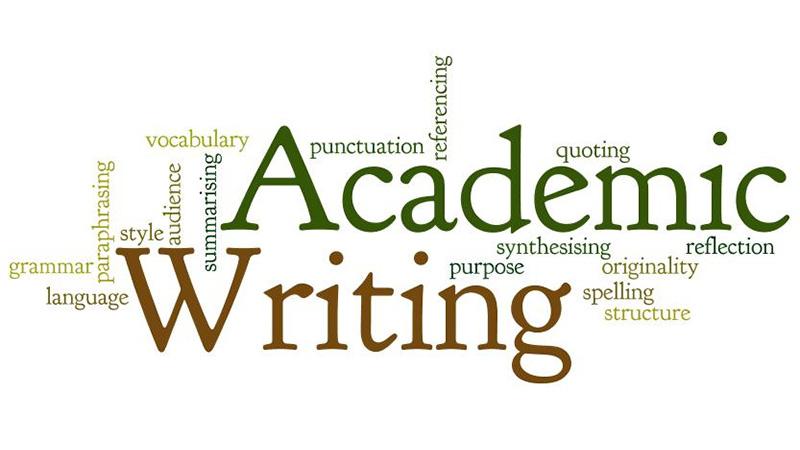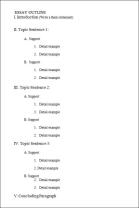Where can I learn about academic writing in English?
Learning about academic writing in English can be accomplished through various educational avenues. Here are several learning opportunities to enhance your academic writing skills:
University Writing Courses:
- Many universities offer writing courses as part of their curriculum. These courses cover academic writing principles, research techniques, and citation styles. Check the writing or English departments for relevant classes.
Online Writing Platforms:
- Explore online learning platforms that provide courses on academic writing. Platforms like Coursera, edX, and Udemy offer courses taught by experienced instructors from universities around the world.
Grammar and Style Guides:
- Refer to reputable grammar and style guides to understand academic writing conventions. Manuals such as "The Chicago Manual of Style" and "Publication Manual of the American Psychological Association (APA)" are widely used in academic writing.
Writing Workshops and Seminars:
- Attend writing workshops or seminars focused on academic writing. These events may be offered by universities, writing centers, or professional organizations.
Writing Centers:
- Many universities and colleges have writing centers that provide resources and support for academic writing. Check if your institution has a writing center with workshops, tutoring, and writing guides.
Books on Academic Writing:
- Explore books dedicated to academic writing. Titles like "They Say, I Say" by Gerald Graff and Cathy Birkenstein or "Writing Your Dissertation in Fifteen Minutes a Day" by Joan Bolker provide practical advice for academic writers.
Research Skills Courses:
- Enroll in courses or workshops that focus on research skills. Effective academic writing often requires strong research abilities. Platforms like LinkedIn Learning and library workshops may offer relevant content.
Scientific Writing Courses:
- If your academic writing pertains to scientific or technical fields, consider courses specifically tailored to scientific writing. These courses often cover conventions, terminology, and structure unique to scientific communication.
Academic Journals and Articles:
- Read articles published in academic journals to observe the writing styles and structures commonly used in your field. Analyze how authors present their research and arguments.
Writing Conferences:
- Attend academic writing conferences or symposiums where scholars discuss writing practices, research methodologies, and effective communication in academia.
Online Writing Communities:
- Join online writing communities where academic writers share experiences, tips, and resources. Websites like ResearchGate or Academia.edu can provide networking opportunities and access to shared knowledge.
Peer Review Groups:
- Form or join peer review groups where members exchange drafts for feedback. Constructive criticism from peers can help you refine your academic writing.
Advanced Writing Courses:
- Look for advanced writing courses that focus specifically on academic writing at an advanced level. These courses may be offered by universities or online platforms.
Academic Writing Blogs:
- Follow blogs dedicated to academic writing advice. Many scholars and writing professionals share tips, strategies, and insights on academic writing through blogs.
Writing Retreats or Residencies:
- Consider attending writing retreats or residencies focused on academic writing. These immersive experiences provide a dedicated space and time for concentrated writing efforts.
Before enrolling in any course or program, consider your specific needs, the level of expertise you're seeking, and the style of academic writing relevant to your field. Additionally, check the credibility of the resources and instructors to ensure a high-quality learning experience.
Where can I find resources to learn about academic writing in English?
Here are some resources where you can find information and learn about academic writing in English:
Online Resources:
- University Writing Centers: Many universities offer online writing centers with resources and guides on academic writing, including Purdue Online Writing Lab (OWL): https://owl.purdue.edu/owl/ and University of North Carolina Writing Center: https://writingcenter.unc.edu/.
- Open Educational Resources (OERs): Websites like OpenStax offer free, openly licensed textbooks and resources on academic writing, including "Write Like a Pro": https://writelikeapro.ck.page/ and "Writing for Success": https://open.umn.edu/opentextbooks/textbooks/53.
- Online Courses and MOOCs: Platforms like Coursera, EdX, and FutureLearn offer various free and paid courses on academic writing, covering topics like research writing, argumentation, and style guides.
- Grammar and Style Guides: Online resources like the Chicago Manual of Style (CMOS): https://www.chicagomanualofstyle.org/ and the MLA Handbook (MLA): https://www.mla.org/Publications/Bookstore/Nonseries/MLA-Handbook-Ninth-Edition provide guidance on grammar, punctuation, and citation styles commonly used in academic writing.
Books and Textbooks:
- "The Elements of Style" by William Strunk Jr. and E.B. White: This classic guide offers concise and practical advice on writing clear and effective prose.
- "On Writing Well" by William Zinsser: This book provides valuable insights and advice on crafting engaging and impactful writing.
- "Bird by Bird: Some Instructions on Writing and Life" by Anne Lamott: This book offers a humorous and encouraging perspective on overcoming writer's block and developing a writing practice.
- "Writing for Social Scientists" by Howard Becker: This book provides specific guidance and strategies for writing research papers and articles in social science disciplines.
Additional Resources:
- Academic Journals and Articles: Reading academic journals and articles in your field can expose you to the specific writing styles and conventions of your discipline.
- Writing Workshops and Groups: Participating in workshops or joining writing groups can provide valuable feedback and support from other students and instructors.
- Tutoring and Writing Centers: Many universities and colleges offer tutoring services and writing centers where you can receive personalized feedback and guidance on your academic writing assignments.
Remember, the most effective way to learn about academic writing is to practice consistently and seek feedback from qualified sources. Utilize a combination of these resources and actively engage with the writing process to improve your skills and achieve success in your academic endeavors.












